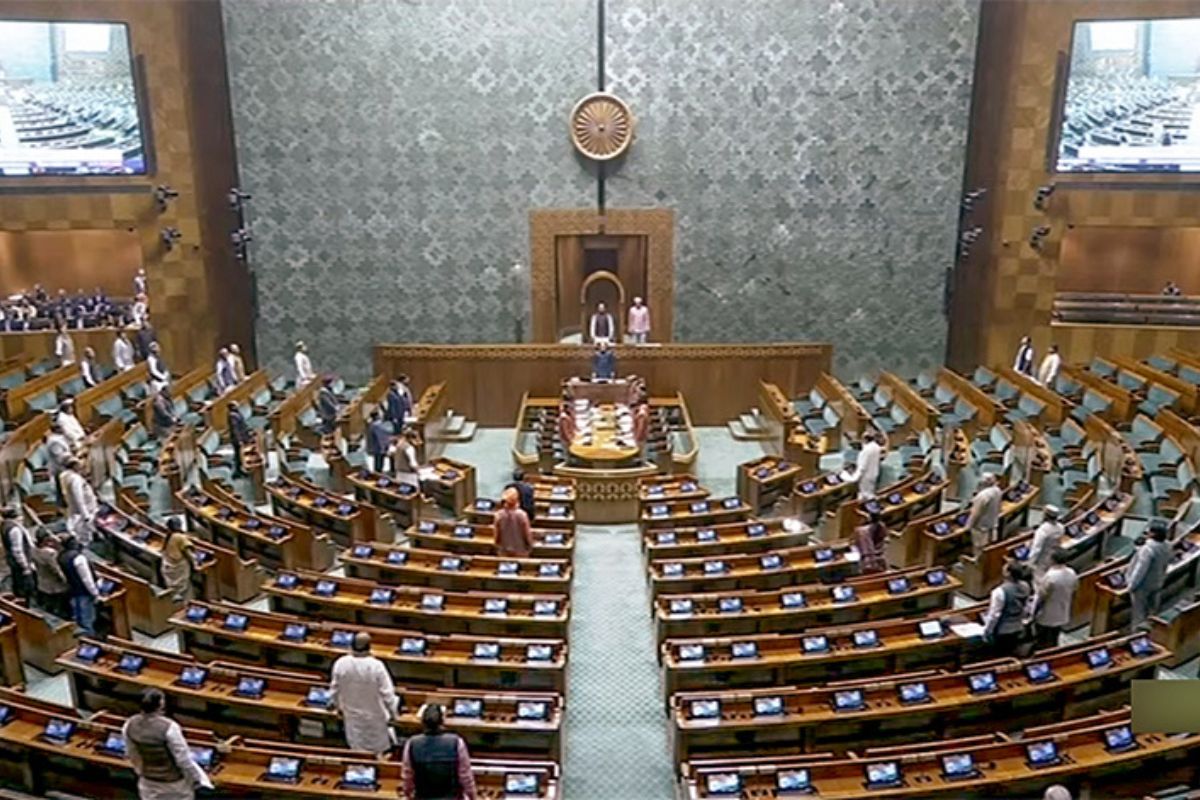Election Commission announces bypolls for 48 assembly and 2 Lok Sabha seats across 15 states
The counting of votes will take place alongside the Maharashtra and Jharkhand Assembly polls on 23rd November.
The Public Examinations (Prevention of Unfair Means) Bill, 2024 will cover entrance examinations held by the UPSC, SSC and the Railways besides all computer-based examinations conducted by the National Testing Agency.

Lok Sabha (Photo:ANI)
The Centre on Monday introduced a Bill in the Lok Sabha to curb paper leaks, malpractices as well as organised malpractices in recruitment examinations like UPSC, SSC, etc. and entrance tests such as NEET, JEE, and CUET.
The Public Examinations (Prevention of Unfair Means) Bill, 2024, was introduced in the House by Union Minister of State for Personnel Dr Jitendra Singh.
The legislation will cover entrance examinations held by the Union Public Service Commission, the Staff Selection Commission, and the Railways besides banking recruitment examinations and all computer-based examinations conducted by the National Testing Agency.
Advertisement
The Bill proposes a punishment of a minimum of three to five years of imprisonment to curb cheating and those involved in organised crimes of cheating will face five to 10 years of imprisonment and a minimum fine of Rs 1 crore.
The Bill is aimed at preventing organised gangs and institutions that are involved in unfair means for monetary gains, but it protects candidates from its provisions.
In the last few years, leaks of question papers and organised cheating have affected the interests of lakhs of students due to the cancellation of tests and examinations, said Dr. Singh, elaborating on the need and significance of the Bill.
“In the recent past, many states have had to cancel or were unable to declare results of their public examinations due to adverse impact of unfair practices and means adopted by antisocial, criminal elements. These unfair practices if not effectively prevented and deterred will continue to jeopardise the future and careers of millions of aspiring youths in this country. In many instances, it has been observed that organized groups and mafia elements are involved. They deploy solver gangs, and impersonation methods and indulge in paper leaks. The Bill primarily aims to deter such kind of nefarious elements,” he said.
At present, said the DoPT Minister, there is no specific substantive law at the national level to deal with unfair means adopted or offences committed by persons, organized groups, or any other agency/organization that adversely impacts the conduct of Public Examinations by the Central Government and its agencies.
“Therefore, it is imperative that the elements both within and outside the examination systems, that exploit these vulnerabilities are identified and effectively dealt with by way of a comprehensive Central legislation. There is a need to prevent such criminal elements from playing with the lives and hopes of genuine and sincere youths who appear in these examinations,” he said.
Dr Singh said the objective is to bring greater transparency, fairness, and credibility to the Public Examination systems and to reassure the youths that their sincere and genuine efforts will be fairly rewarded and their futures are safe.
“The Bill is aimed at effectively and legally deterring persons, organised groups or institutions that indulge in various unfair means and adversely impact the public examination systems for monetary or wrongful gains,” he said.
The Bill, however, clarified Dr Singh, protects the candidates appearing in the examination from the punitive provisions and they will be governed under the provisions of the existing unfair means policy of the examination conducting authority.
“Candidates shall not be liable for action within the purview of the Bill and shall continue to be covered under the extant administrative provisions of the concerned public examination authority,” he said.
In view of many examinations being conducted online and the increasing role of technology in conduct of public examinations, Dr Singh said, it has also been decided to set up a High level National Technical Committee on Public Examinations which will look into developing protocol for insulating digital platforms, devising ways and means for developing foolproof IT security system, ensuring comprehensive electronic surveillance of the examinations centres and formulating national standards and service levels for both, IT and physical infrastructure, to be deployed for the conduct of such examinations.
Advertisement